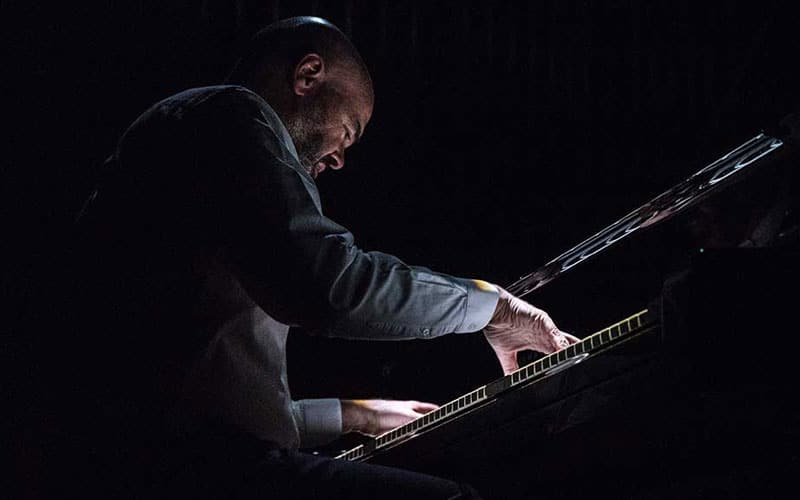Well, the easy but wrong in my opinion answer is that, yes you can teach yourself the piano. It’s a wrong answer however, because you can’t really teach yourself the classical piano, I’m afraid.
It’s true that there are many musicians that managed to build a successful career in music, and they were self-taught. However, none in my knowledge, (please, do correct me if I’m wrong) were entirely self-taught and became established performers in classical piano. Some of them they might have begun by being self-taught, but surely, they must have had some sort of formal studying at some point in their lives. I wouldn’t buy anything less than that.
The reason as to why this happens is, because, mastering classical piano needs the passing of traditions through physical representation; basically, what that means is, that you need a teacher to constantly scold you and tell you what to do in order to become a good pianist.
Please, let me elaborate:
What happens to a self-taught pianist is the following: they learn to play the piano by improving what they personally think needs improvement. The judge and the teacher of what to improve, is, ultimately, themselves.
The upsides to this, are:
1. Self-taught people pay no fees to learn.
2. They personally choose what needs to be improved.
3. There are no learning deadlines, and so, no stress.
4. They are free to express themselves however they feel like.
The downsides to be your own teacher, are:
1. I’m afraid, reaching a high interpretational level is not easily feasible.
2. You don’t direclty know what needs improvement, and so there’s a lot of guessing and a lot of going backwards and forwards, resulting in needless wasting of time.
3. Often, a self-taught pianist is choosing wrong things to improve and, unavoidably, attempting to improve them, with wrong approaches.
4. It can become harder to set learning milestones, in order to reach your goals faster.
5. Feedback on your progress can be sketchy. Friends can be supportive and all, but unless they are musicians they can’t take you further musically.
In life sometimes, there’s no need to reinvent the wheel and often we just need to follow the beaten-track.
From the beginning of time humans assisted each other when they were trying to learn and when they were trying to achieve things faster and efficiently. The same should apply to music, as well.
So: Why do you need a piano teacher and not an online guide or such?
Because, a good teacher will quickly identify and correctly eliminate your technical weaknesses. He will make you confident and reassured of your own performances. He will know what it will take for you personally, to improve faster. He will point you to the right directions to further your career later on. He will strive to understand your own interpetational approaches and enhance them. And, yes, he will make you sit on the piano stool more often, and practise.
So, to recap and simplify what I’ve already written above: if you want to play the piano for fun and require performing without caring to much about pianism and all that jazz, yes, you can use a book or an online guide to teach yourself how to play the piano; that’s not contemptible at all, and it’s absolutely great. However, demanding the deliverance of a convincing performance of a universally standardised musical medium, such as classical or jazz music, then one needs a professionally trained instructor.
Good luck to your musical endeavors.



Yes ,
Thank you for your comment!
I disagree with some of you points but over all this is a pretty good argument
Thank you for your reply Seth. I really appreciate that you took the time to reply.
I am sure that some people could become great pianists by teaching themselves —I would have found it really hard. But, in music nothing is set in stone and anybody can be proven wrong at any point, especially when trying to predict the future; nobody can predict or define someone’s musical journey.
I suppose, you live and learn. But an article such as this, an online video cannot substitute teaching by a qualified individual.